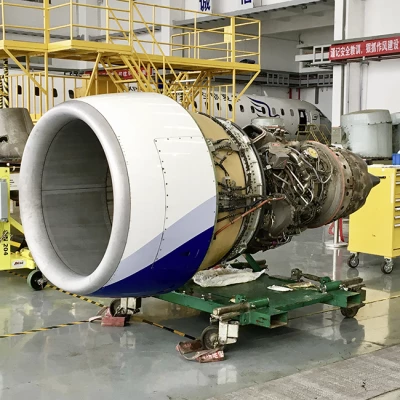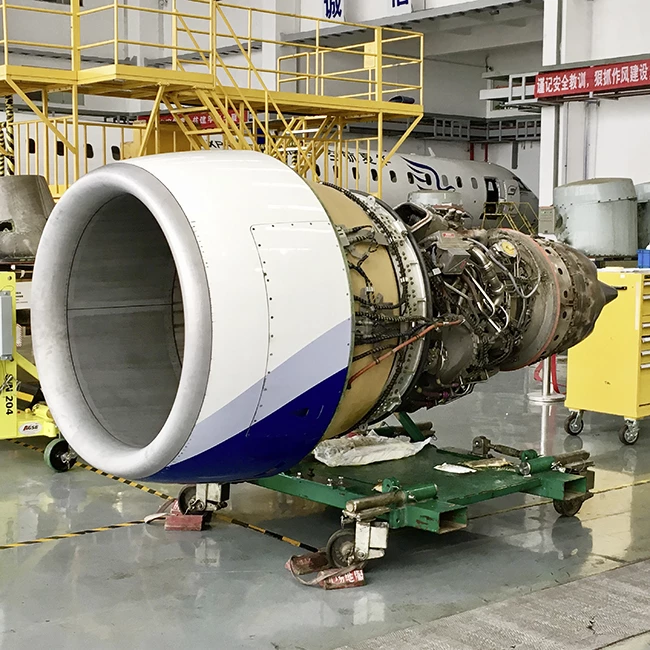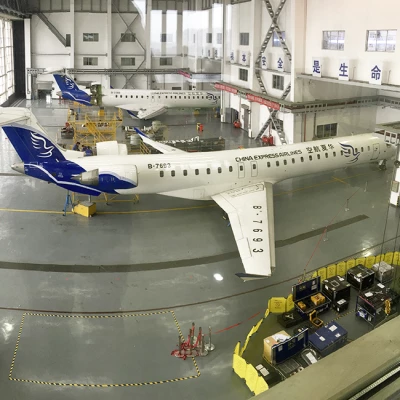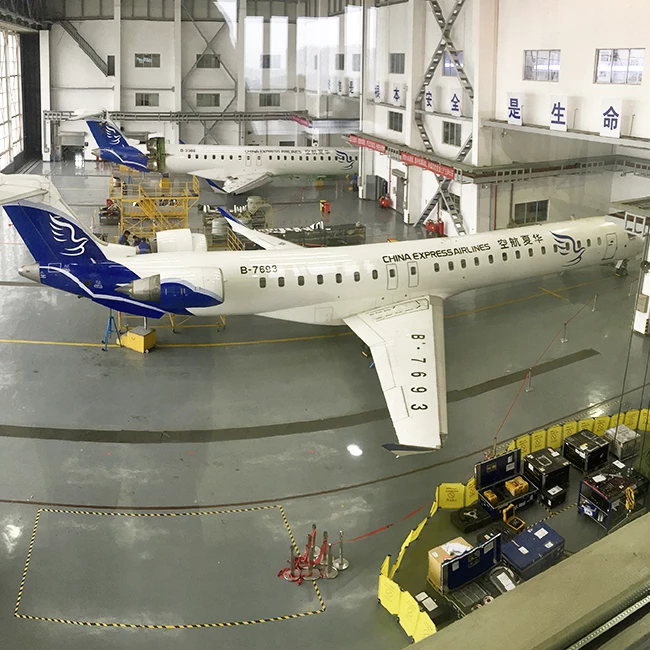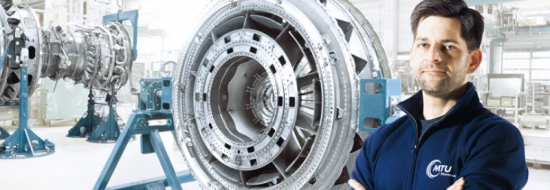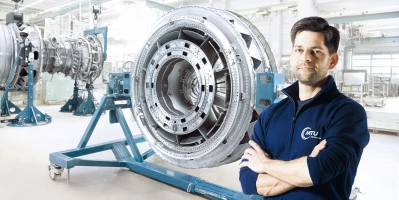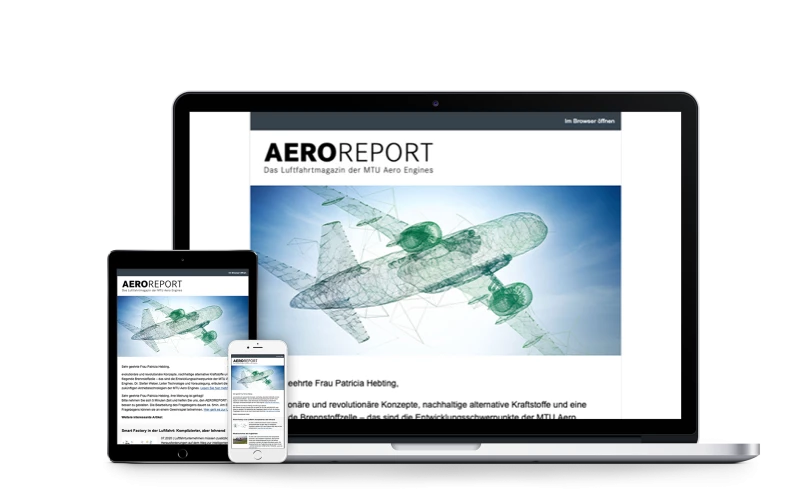aviation
MTU’s on‑site services are a winning formula in the Chinese domestic air travel market
Demand for flights between secondary destinations in China is increasing. Up‑and‑coming provider China Express Airlines benefits from MTU’s on‑site services.
09.2019 | author: Andreas Spaeth | 3 mins reading time
author:
Andreas Spaeth
has been traveling the world as a freelance aviation journalist for over 25 years, visiting and writing about airlines and airports. He is frequently invited to appear on radio and TV programs.
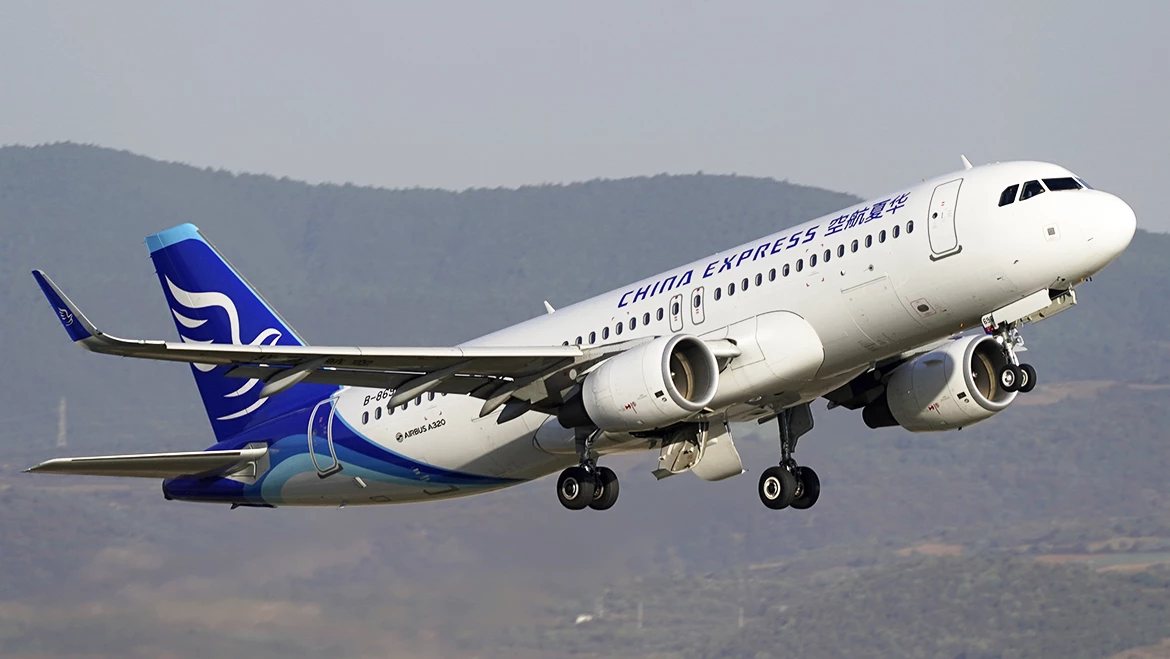
Since April 2019, China’s first private regional airline has been flying from metropolis of Zhengzhou, the capital of Henan Province with a population of ten million, to Mandalay in Myanmar, a popular tourist destination. “China Express Airlines is capitalizing on niche markets, where the demand is huge in China. Although flying is still something of a novelty, it is really on the rise,” says Daniel Hummel from MTU Maintenance Berlin‑Brandenburg in Ludwigsfelde.
Hummel is in charge of Sales Support for MRO services for CF34 engines, which power various regional jet models. From their Brandenburg base, Hummel and his colleagues also manage the on‑site service in China, assisted on the ground by a Chinese colleague from MTU Maintenance Zhuhai. MTU’s joint venture with China Southern Airlines, one of the country’s largest carriers, is a resounding success.
First impressions count
With the support of MTU Maintenance Zhuhai, Hummel and his colleagues recently succeeded in helping China Express solve a problem, thereby “presenting a highly impressive business card”, as Hummel puts it. Until then, the Chinese regional airline had not been a regular MTU customer, but had its engines maintained by a Japanese competitor. “However, only six shops in the world are able to maintain the CF34; like the entire MRO sector, they are working at maximum capacity,” Hummel says. “We helped the airline after two CF34 aircraft were damaged in operation and had to undergo unplanned engine disassembly.”
Thanks to the MTU experts who flew in from Germany and their back‑up from the Zhuhai site, the on‑site service team was able to save the day. In October 2018, the modules of both high-pressure turbines were removed in situ and flown to Berlin. Here, they were expertly overhauled in MTU’s Ludwigsfelde shop, which specializes in CF34 engines. “Shipping the components rather than the entire engines meant the costs of the repair were considerably lower,” Hummel explains. However: “Getting the licenses needed for on‑site work involves many links, sometimes taking months. The tools we needed for the job in China were stuck in customs for two and a half weeks while we waited for the import license,” the MTU manager adds.
However, there is no doubt in his mind that it is worth the effort. “Our colleagues from Zhuhai are fantastic at interpreting and opening doors in China. Over there, everyone in the aviation sector graduated from one of just four universities and is therefore part of a tight network,” Hummel says. In MTU Maintenance Zhuhai’s portfolio are also CFM56 engines that power Airbus A320 family aircraft, which China Express operates, too. This opens up other potential lines of business.

seats/week
domestic flight market

domestic flights
as border passing

growth
in international air traffic
Growth off the beaten track
In particular, traffic between airports that are not on the main routes, which is China Express’ niche, looks set to skyrocket. Today, China is the world’s second largest domestic aviation market after India, almost triple the size of the US market. According to CAPA, with 14 million seats per week, China currently has seven times more capacity on domestic flights than on cross‑border connections. However, international traffic is growing even faster, by some 14 percent in the past twelve months, and doubling over the last five years.
The country is a great market with many opportunities for growth in regional air traffic.
As the major international hubs in China are often overloaded, a dynamic market is rapidly developing between secondary destinations, of which there are more than in any other country. At the last census in 2010, 85 cities in China had more than one million inhabitants. “The country has a terrific market with plenty of opportunities for growth in regional air traffic,” says Professor Li Guijin from the Chinese Civil Aviation Management Institute. He continues: “Smaller regional companies would be advised to join forces with the big airlines; the collaboration between Air China and China Express Airlines is a shining example.”
Hummel is confident that MTU is in pole position, particularly with regard to private airlines such as China Express. “We were able to put in a tailored, flexible bid. Good communication can open a lot of doors.”







